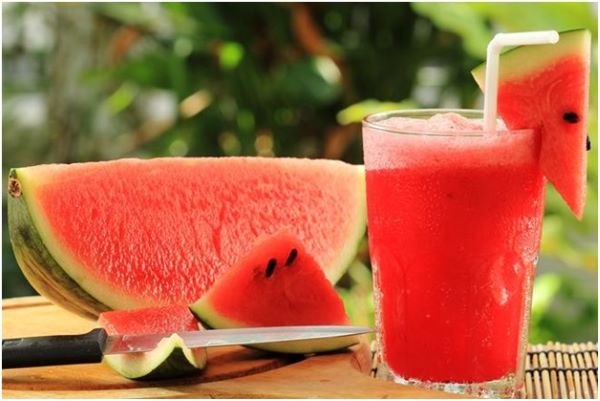Kidney stones are hard deposits formed from minerals and salts that accumulate in the kidneys. These stones can cause significant pain and discomfort. Diet plays a crucial role in preventing and managing kidney stones. Certain fruits, due to their unique composition of vitamins, minerals, and water content, can help reduce the risk of kidney stone formation. This article explores the best fruits for kidney stones, supported by scientific evidence and research, offering natural solutions to maintain kidney health.
1. Lemons and Limes:
Scientific Evidence: Lemons and limes are rich in citrate, which can help prevent the formation of kidney stones by binding with calcium, thus reducing the amount of calcium available to form stones. A study in the Journal of Urology found that lemon juice significantly increases urinary citrate levels, reducing the risk of stone formation. (Source)
Benefits: Citrate in lemons and limes helps prevent kidney stones, promotes hydration, and aids in detoxification.
Use: Drink lemon or lime water daily, add to salads, or use as a garnish.
2. Oranges:
Scientific Evidence: Oranges are another excellent source of citrate, which can help prevent the formation of kidney stones. Research in the Clinical Journal of the American Society of Nephrology suggests that regular consumption of orange juice can increase citrate levels in urine and lower the risk of stone formation. (Source)
Benefits: Oranges provide hydration, boost citrate levels, and support overall kidney health.
Use: Eat fresh oranges, drink fresh orange juice, or add to salads.
3. Watermelon:
Scientific Evidence: Watermelon is highly hydrating and contains potassium, which helps regulate the acid-base balance in the urine, preventing stone formation. A study in the Journal of Clinical Investigation found that increased fluid intake from fruits like watermelon can help flush out the kidneys. (Source)
Benefits: Watermelon promotes hydration, helps flush out kidneys, and prevents the formation of kidney stones.
Use: Eat fresh watermelon, add to fruit salads, or drink watermelon juice.
Also, watch web stories: What are the good and bad health effects of coffee?
4. Pomegranate:
Scientific Evidence: Pomegranates are rich in antioxidants and have a high water content, which can help prevent kidney stones. A study in the Journal of Endourology found that pomegranate juice can help prevent the formation of certain types of kidney stones by reducing oxidative stress and promoting detoxification. (Source)
Benefits: Pomegranates prevent oxidative stress, promote detoxification, and prevent kidney stone formation.
Use: Eat fresh pomegranate seeds, drink pomegranate juice, or add to salads.
5. Apples:
Scientific Evidence: Apples are high in fiber and antioxidants, which can help reduce the risk of kidney stones. Research published in the British Journal of Nutrition indicates that a diet high in fiber from fruits like apples can help lower the risk of stone formation. (Source)
Benefits: Apples provide fiber, support kidney health, and reduce the risk of kidney stones.
Use: Eat fresh apples, add them to salads, or use them in cooking and baking.
Also, read: Apples and Weight Loss: Did you Know Apples Can Help you Lose Weight?
6. Berries (Strawberries, Blueberries, Raspberries):
Scientific Evidence: Berries are rich in antioxidants and vitamin C, which can help prevent the formation of kidney stones. A study in the Journal of Nutrition found that the antioxidants in berries help reduce oxidative stress, a risk factor for kidney stone formation. (Source)
Benefits: Berries prevent oxidative stress, promote kidney health, and provide essential vitamins and antioxidants.
Use: Eat fresh berries, add them to yogurt, or blend them into smoothies.
7. Pineapple:
Scientific Evidence: Pineapple contains bromelain, an enzyme that has anti-inflammatory properties and can help reduce the risk of kidney stone formation. A study in the Journal of Ethnopharmacology suggests that bromelain can help prevent the formation of calcium oxalate crystals, which are a common type of kidney stone.
Benefits: Pineapple reduces inflammation, prevents calcium oxalate crystal formation, and promotes kidney health.
Use: Eat fresh pineapple, add it to smoothies, or use it in fruit salads.
8. Grapes:
Scientific Evidence: Grapes are high in water content and antioxidants, which can help prevent kidney stones. Research in the Journal of Agricultural and Food Chemistry indicates that the antioxidants in grapes help reduce oxidative stress and support kidney function. (Source)
Benefits: Grapes promote hydration, reduce oxidative stress, and support kidney health.
Use: Eat fresh grapes, drink grape juice, or add them to salads.
9. Cranberries:
Scientific Evidence: Cranberries are known for their ability to prevent urinary tract infections, which can contribute to kidney stones. A study in the Journal of Urology found that cranberry juice can help prevent the formation of certain types of kidney stones by reducing the concentration of stone-forming compounds in the urine.
Benefits: Cranberries prevent urinary tract infections, reduce stone-forming compounds, and promote kidney health.
Use: Drink cranberry juice, eat fresh cranberries, or add them to salads.
10. Bananas:
Scientific Evidence: Bananas are rich in potassium, which can help reduce the formation of kidney stones by regulating the balance of minerals in the body. A study published in the Journal of Clinical Nutrition suggests that adequate potassium intake can help prevent the formation of kidney stones. (Source)
Benefits: Bananas regulate mineral balance, prevent kidney stones, and provide essential nutrients.
Use: Eat fresh bananas, add them to smoothies, or use them in baking.
Conclusion:
Incorporating these fruits into your diet can provide essential nutrients that help prevent the formation of kidney stones and promote overall kidney health. Their high water content, antioxidant properties, and beneficial compounds work synergistically to support kidney function and reduce the risk of stone formation. As with any dietary changes, it’s important to consult with healthcare providers, especially for individuals with pre-existing kidney conditions.





